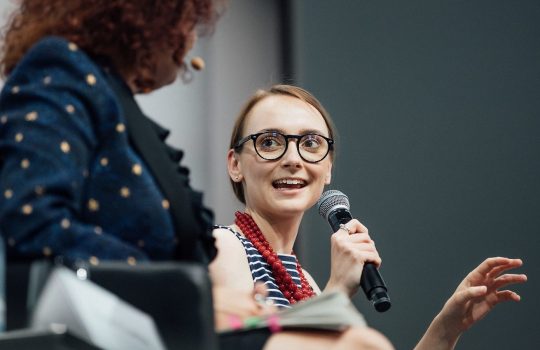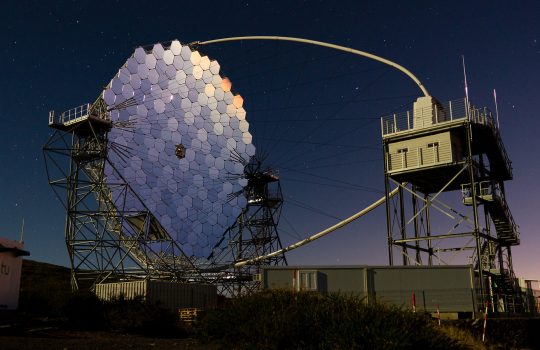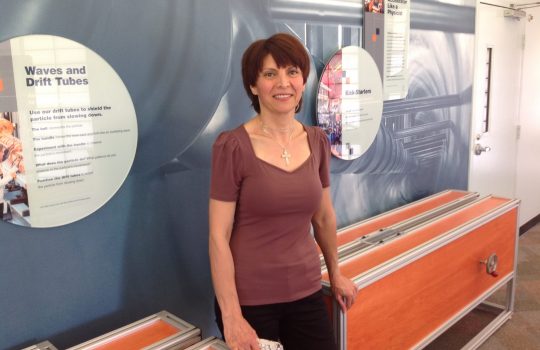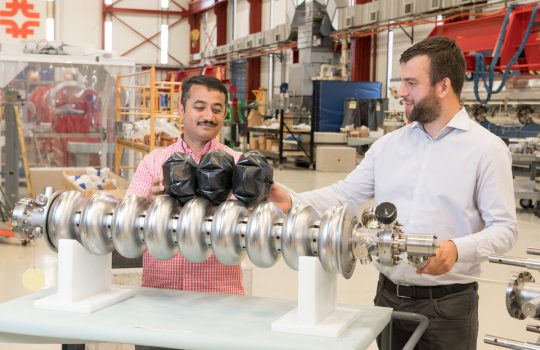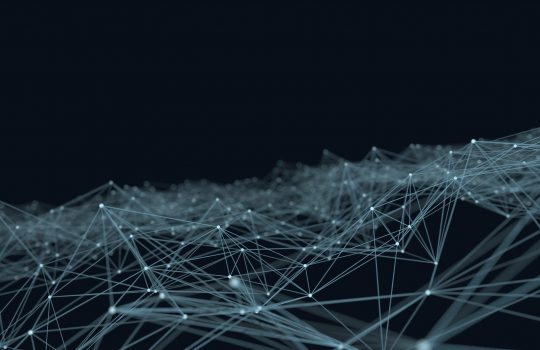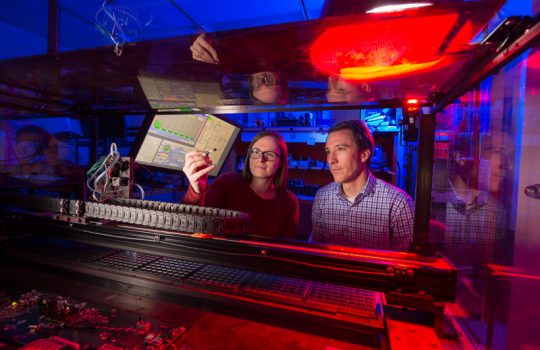Q&A with nuclear scientist Maria Żurek
Żurek shares her experiences at the 2019 Lindau Nobel Laureate Meeting —from a blimp flight with Ada E. Yonath, who won the Nobel Prize in Chemistry in 2009, to a panel discussion she participated in with three Nobel laureates about navigating a career path in science.

